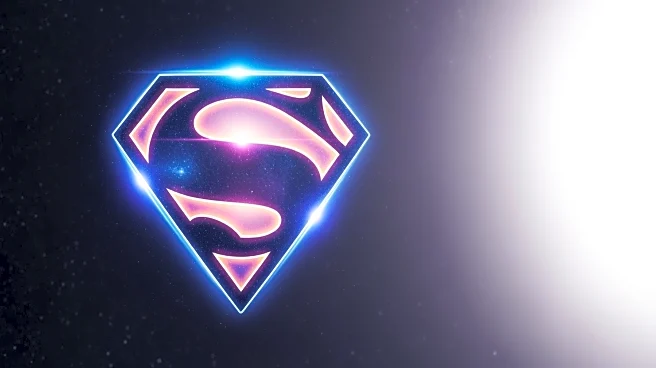What's Happening?
The second season of 'Gen V', a spin-off of the popular series 'The Boys', has been released on Prime Video. The season continues to explore the lives of superpowered students at God U, with themes of political anarchy and personal struggles. The show
pays tribute to cast member Chance Perdomo, who passed away, by integrating his character's off-screen sacrifice into the storyline. Despite strong performances, particularly by Hamish Linklater as Cipher, the season faced criticism for its unimpressive fight scenes and uneven pacing. The narrative attempts to address social issues such as racism and body dysmorphia, but some viewers felt the humor and dialogue fell flat.
Why It's Important?
The series' exploration of political themes and social issues reflects broader societal concerns, particularly in the context of superhero narratives. By addressing topics like racism and body dysmorphia, 'Gen V' contributes to important conversations about representation and inclusivity in media. The show's approach to these themes can influence audience perceptions and encourage critical engagement with real-world issues. However, the mixed reviews highlight the challenges of balancing entertainment with meaningful storytelling, which is crucial for maintaining viewer interest and cultural relevance.
What's Next?
The future of 'Gen V' may depend on its ability to refine its narrative and address viewer criticisms. As the series progresses, it could further explore the dynamics between superpowered and non-superpowered individuals, offering deeper insights into societal power structures. The show's connection to 'The Boys' suggests potential crossover events or shared storylines, which could expand its universe and attract a broader audience. The reception of season two will likely influence decisions about the show's continuation and its approach to storytelling.
Beyond the Headlines
The series' portrayal of superpowered individuals as a metaphor for societal issues raises questions about the role of fantasy in addressing real-world problems. 'Gen V' challenges traditional superhero narratives by incorporating themes of political anarchy and social justice, prompting discussions about the impact of media on public consciousness. The show's exploration of personal struggles, such as body dysmorphia, highlights the potential for genre storytelling to offer nuanced perspectives on complex issues.















